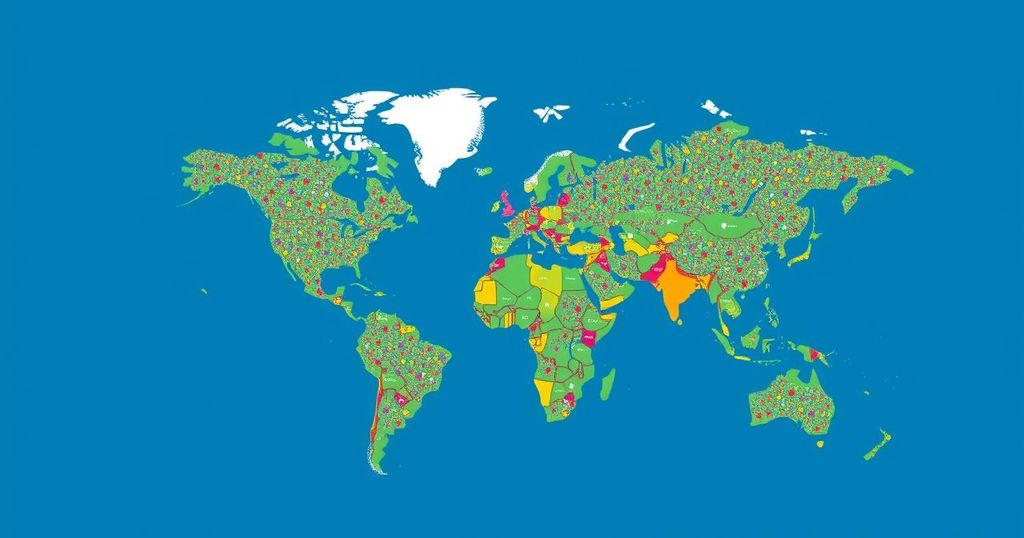The collaboration among Spotify, Coldplay, FC Barcelona, FC Barcelona Foundation, and UNHCR seeks to address the adverse effects of climate change on refugees in Uganda through tree planting and innovative waste management projects. This initiative acknowledges the compounded challenges of climate vulnerability and forced displacement faced by refugees in Uganda, marking a significant step towards promoting sustainable practices and empowering communities.
The climate crisis is having a disproportionately negative impact on refugees and individuals displaced by conflict, along with the communities that accommodate them. These populations are increasingly confronted with harsh living conditions, leaving them with few options for escape. In recognition of this pressing issue, a collaboration has been established between Spotify, Coldplay, FC Barcelona, the FC Barcelona Foundation, and UNHCR to facilitate tree planting initiatives in Ugandan settlements inhabited by refugees and the surrounding host communities. This initiative aims to advance reforestation efforts within ecosystems adversely affected by extreme drought. Additionally, this collaborative effort supports innovative projects initiated by young refugees, which aspire to tackle the plastic waste crisis and the demand for sustainable construction materials. These projects involve the collection of discarded plastics within their communities, subsequently transforming them into durable, environmentally-friendly tiles. Since 2022, FC Barcelona, the FC Barcelona Foundation, and UNHCR have recognized the transformative power of sport and have partnered to provide sport-related protective activities for displaced individuals and refugee children and youth in various countries including Colombia, Malaysia, Türkiye, El Salvador, and Uganda. Specifically in Uganda, the nation faces considerable challenges stemming from both climate change and forced displacement. Uganda is highly susceptible to the effects of climate change, which manifests in erratic rainfall, increasing instances of drought, flooding, and seasonal forest fires. Climate-related challenges further disrupt rainfall patterns, complicating agricultural planning and exacerbating food insecurity. As a result, Uganda accommodates over 1.7 million refugees hailing from South Sudan, the Democratic Republic of Congo, Burundi, and Somalia. Following their displacement, refugees become more vulnerable to the repercussions of climate change, intensifying the adverse effects of their circumstances. The compounded challenges posed by climate change and forced displacement place a strain on available resources, heighten tensions, and challenge efforts to provide adequate protection and assistance to both the refugee population and the host communities. UNHCR plays a crucial role in coordinating and promoting climate action efforts tailored towards refugees, collaborating with various partners and the private sector to not only meet the urgent needs of displaced persons but also to foster sustainable improvements. This approach aims to reinforce essential services and diminish reliance on humanitarian aid, thereby empowering communities to tackle climate-related challenges and prepare for future uncertainties.
The climate crisis continues to escalate, profoundly affecting vulnerable populations, including the millions of refugees worldwide. Those displaced due to conflict often find themselves in precarious situations where environmental challenges further exacerbate their struggle for survival. Uganda stands out as a significant host country for refugees, particularly due to its visibility regarding the intersection of climate change and human displacement. The ongoing partnership between governments, global organizations, and local communities is essential to address these interconnected issues, cultivating resilience and sustainable development in affected areas while supporting those most in need.
In conclusion, the partnership aimed at addressing climate change and supporting refugees in Uganda illustrates the need for collaborative efforts to mitigate the impacts of the climate crisis. By integrating reforestation initiatives and innovative recycling projects, this initiative seeks to enhance the resilience of both refugees and host communities. The ongoing challenges of climate change, coupled with forced displacement, necessitate immediate action and sustained support to ensure the well-being and protection of these vulnerable populations.
Original Source: www.unhcr.org






